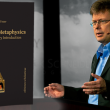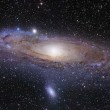Marriage, Natural Law, and the Truth of Sexual Ethics
by Robert P. George
Filed under Sexuality

Gary Gutting is a Notre Dame philosophy professor who thinks that what counts about arguments is whether they “work.” And so his complaint against natural-law arguments for Catholic teachings about sex is that they “no longer work (if they ever did)”. His New York Times “Opinionator” post of March 12th (“Unraveling the Church Ban on Gay Sex”) names us as two people who are “still” exponents of such arguments. For us what counts about an argument is whether it is sound,... Read More
Scholasticism vs. Scientism: An Interview with Dr. Edward Feser
by Brandon Vogt
Filed under Christianity and Science, Interviews, The Existence of God

Dr. Edward Feser is one of today's foremost Catholic philosophers who specializes in Aristotelian/Thomistic metaphysics and the philosophy of religion. He's an associate professor of philosophy at Pasadena City College and the author of several published articles and books, including The Last Superstition, Aquinas, and Philosophy of Mind (A Beginner's Guide). He's also written several articles here at Strange Notions. Dr. Feser's newest book, which I'm discussing with him today, is... Read More
What is a Soul?
by Dr. Edward Feser
Filed under Anthropology

What is a soul? Or to be more precise, what is a human soul? Or to be even more precise, what is a human being? For that is really the key question; and I sometimes think that the biggest obstacle to understanding what the soul is is the word “soul.” People too readily read into it various erroneous notions (erroneous from an Aristotelian-Thomistic point of view, anyway)—ghosts, ectoplasm, or Cartesian immaterial substances. Even the Aristotelian characterization of the... Read More
Debunking the “One God Further” Objection
by Dr. Edward Feser
Filed under The Existence of God

Philosopher Bill Vallicella recently replied to what might be called the “one god further” objection to theism. Bill sums up the objection as follows: "The idea, I take it, is that all gods are on a par, and so, given that everyone is an atheist with respect to some gods, one may as well make a clean sweep and be an atheist with respect to all gods. You don't believe in Zeus or in a celestial teapot. Then why do you believe in the God of Isaac, Abraham, and Jacob?" Or as the Common... Read More
Cosmology and Causation: Why Metaphysics Matters
by Dr. Edward Feser
Filed under Cosmology, The Existence of God

Several people have asked me to comment on the remarks about causation made by atheist physicist Sean Carroll during his recent debate with William Lane Craig on the topic of “God and Cosmology.” (You’ll find Craig’s own post-debate remarks here.) It’s only fair to acknowledge at the outset that Carroll cannot justly be accused of the anti-philosophy one finds in recent remarks by physicists Stephen Hawking, Lawrence Krauss, and Neil deGrasse Tyson. Indeed, Carroll has... Read More
Finding God’s Dice

When most people think of Albert Einstein’s contribution to physics, the theory of relativity is what comes to mind, and rightly so. What most don’t realize is that his Nobel Prize was actually awarded for explaining the photoelectric effect, a result which contradicted the classical understanding of light and helped lead to the development of Quantum Mechanics. Despite his major contributions to its development, Einstein was famously uncomfortable with the way randomness and uncertainty... Read More
From Faith Came Science: The Condemnations of 1277
by Dr. Stacy Trasancos
Filed under Christianity and Science

In 1277, Étienne Tempier, the Bishop of Paris, issued a list of 219 condemned propositions relating to details of Aristotelian texts that were irreconcilable with the Christian worldview. These propositions were not binding on Christians, but served as a guide for the scholars at the University of Paris. The decree largely dealt with the eternity of the world and creation. The Condemned Propositions The propositions are often referenced by historians of science, and their intent... Read More
The Road from Atheism: Dr. Edward Feser’s Conversion (Part 3 of 3)
by Dr. Edward Feser
Filed under Atheism, Conversion

NOTE: On Monday we shared Part 1 of Dr. Edward Feser's conversion story from atheism to theism and on Wednesday we posted Part 2. Today we share the final Part 3. We'd also like to note that Dr. Feser's contributions at Strange Notions were originally posted on his own blog, and therefore lose some of their context when reprinted here. Dr. Feser explains why that matters. Several crucial background elements were in place by the late 90s. Fregean and related arguments had gotten... Read More
Would God Create a Gigantic Universe?
by Trent Horn
Filed under Cosmology, God's Nature

Some critics claim that if God existed, then the universe would not be 13.7 billion years old or be 93 billion light years across as it is currently. Hasn’t science shown that this immense universe was not created for us but that we are an inconsequential part of an uncreated universe? The problem with this argument is that science can show us only the universe’s dimensions; it cannot reveal any meaning or lack of meaning inherent in those dimensions. In response to this argument,... Read More
Being, Miracles, and God: Answering a Reasonable Atheist
by Mark Shea
Filed under The Existence of God

In the course of a discussion on my personal blog about the existence of God and of the miraculous, an unbelieving reader (who strikes me as open to reasonable discussion) wrote me to say: "All I’m saying is that people everywhere demonstrate a powerful desire to believe that there is intervention in the material universe from outside the material universe." Except that’s not true. Lots of people also demonstrate a powerful desire to believe there is no intervention in the material... Read More






